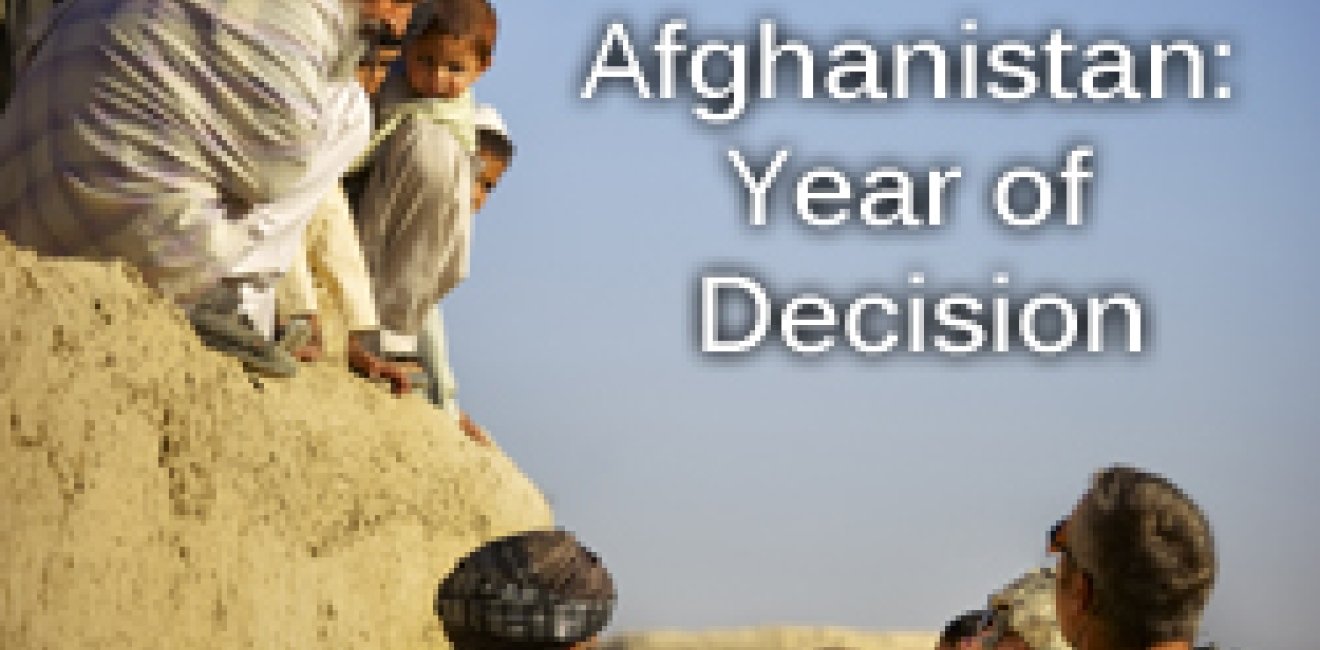A Positive Surprise in Afghanistan
Senior Scholar Marvin Ott discusses the recent elections in Afghanistan.
Senior Scholar Marvin Ott discusses the recent elections in Afghanistan.

When the US responded to the 9/11 terror attacks by invading Afghanistan, it was about neutralizing a proven security threat – and vengeance. The initial results were gratifying; the Taliban regime was overthrown and Al Qaeda (including Osama bin Laden) sent into retreat across the border into Pakistan. The Bush Administration then shifted its attention to Iraq and Afghanistan went to the back burner. When Bin Laden was finally tracked down and killed by the combined efforts of the CIA and US Special Operations commandos, there was an understandable sense among many Americans that our effort in Afghanistan should be wrapped up. This was particularly true given the huge accumulated (and ongoing) costs – 2,178 American dead plus $1.6 trillion and counting. The President of Afghanistan, Hamid Karzai, made matters (much) worse by going out of his way to excoriate the American presence accusing the US military of wantonly killing Afghan civilians and US officials of colluding with the Taliban against him. The accusations were bizarre and infuriating. No wonder that recent public opinion polls have shown that a clear majority of Americans want out of Afghanistan and believe the war there was not worth fighting. It is a pretty dramatic turnaround from the prevailing opinion in 2001.
Yet there have been insistent voices among analysts and journalists that closely follow Afghanistan – and among the US military that have served there – urging that we not give up the fight. Their arguments fall into three broad categories.
First, America has invested far too much to throw it all away and leave. And we have been here before. In 1989 with the withdrawal of Soviet forces from Afghanistan the US halted its support for “Mujahidin” fighters and left post-Soviet Afghanistan to its own devices. The result was the Taliban and Al Qaeda. Today the Taliban are still strong enough to pose a credible threat to return to power if the US leaves once again.
Second, Americans tend to assume that US-style solutions will work everywhere. We are typically impatient and prone to unrealistic expectations and when these are not met we are quick to see blanket failure. The “human terrain” in Afghanistan is as difficult as anywhere in the world, an intricate mélange of tribal (often pre-modern) cultures infused with an often primitive and distorted understanding of Islam. And these tribal cultures are highly martial; they will take up arms against outsiders as a matter of course. It is no accident that Afghanistan has been known historically as the “graveyard of empires” – just ask the Soviets. When the US arrived determined to secure and transform Afghanistan, it was taking on “mission nearly impossible.” The lesson is don’t apply an unreasonable standard to judge success and failure. For, truth be told, Afghanistan today has been powerfully changed by the American presence.
Third, President Karzai is not Afghanistan; his relationship with the US government has become a dysfunctional psychodrama peculiar to Karzai and to him alone. Karzai’s refusal to sign a Bilateral Security Agreement (BSA) that would continue a reduced US military presence beyond 2014 – after first pledging to sign it -- has been uniformly criticized across the Afghan political spectrum.
The test for all this has come with the elections for President in Afghanistan that took place this past weekend. It was easy to imagine multiple ways in which the elections would validate failure. Corruption and insecurity could demoralize the electorate and reduce turnout. Candidates that support radical, anti-American (and even pro-Taliban) objectives could run and even win. Alternatively, candidates who are strident advocates of one ethnic group or another could fracture what passes for national unity. Finally, after the votes are counted the losers and their supporters could refuse to recognize the results.
Against this backdrop of unease and uncertainty, what has actually happened is borderline miraculous. Multiple candidates entered the race, including three real heavyweights with extensive government experience. All of them embraced programs that called for national unity across the various ethnic divisions – and all called for repairing Kabul’s relationship with Washington. This included a pledge to quickly sign the BSA. Despite fierce Taliban criticism and multiple attacks, election rallies drew huge enthusiastic crowds. When the day actually arrived, cold and wet, the turnout in the relatively secure urban areas exceeded all expectations. Many rural and remote areas were just too insecure to conduct a vote, but in many others local people literally risked their lives to embrace their democratic right. In a society known for its traditional subjugation of women, nearly a third of the voting electorate was female. International poll watchers were largely scared off by bloody Taliban attacks before Election Day, but local poll watchers were ubiquitous. To the great relief of all, Afghan security forces which assumed the entire responsibility for securing the election and keeping the Taliban at bay were broadly successful. In recent months the US military has held to a plan of handing over operational leadership and responsibility for national security to the Afghan army and police. One noteworthy consequence of that has been the elevation of once-reviled Afghan security forces in public esteem. Ordinary Afghans now take visible pride in their army and as that pride is felt it has a tangible effect on the operational performance of Afghan soldiers.
In sum, the election was a remarkable achievement for both Afghanistan and America. Much remains uncertain, much could still go wrong – but let’s recognize and accept good news when it happens.
Marvin C. Ott
Senior Scholar, Woodrow Wilson International Center for Scholars.
This op-ed originally appeared The Elsworth American newspaper in Elsworth, Maine.


The Indo-Pacific Program promotes policy debate and intellectual discussions on US interests in the Asia-Pacific as well as political, economic, security, and social issues relating to the world’s most populous and economically dynamic region. Read more



